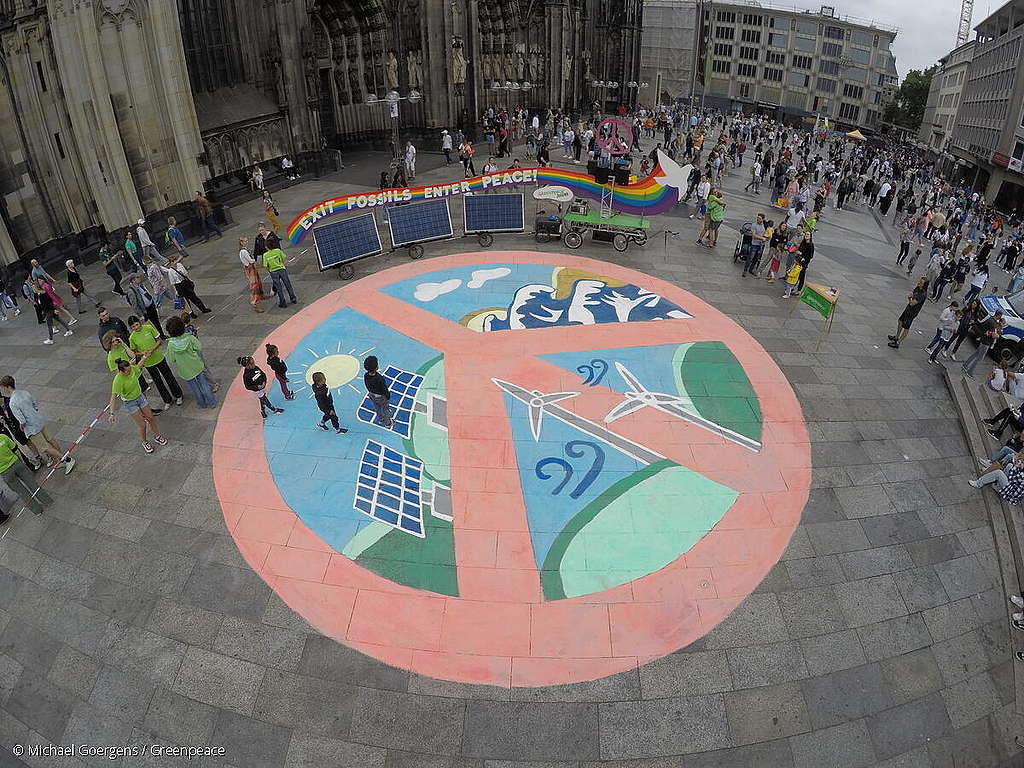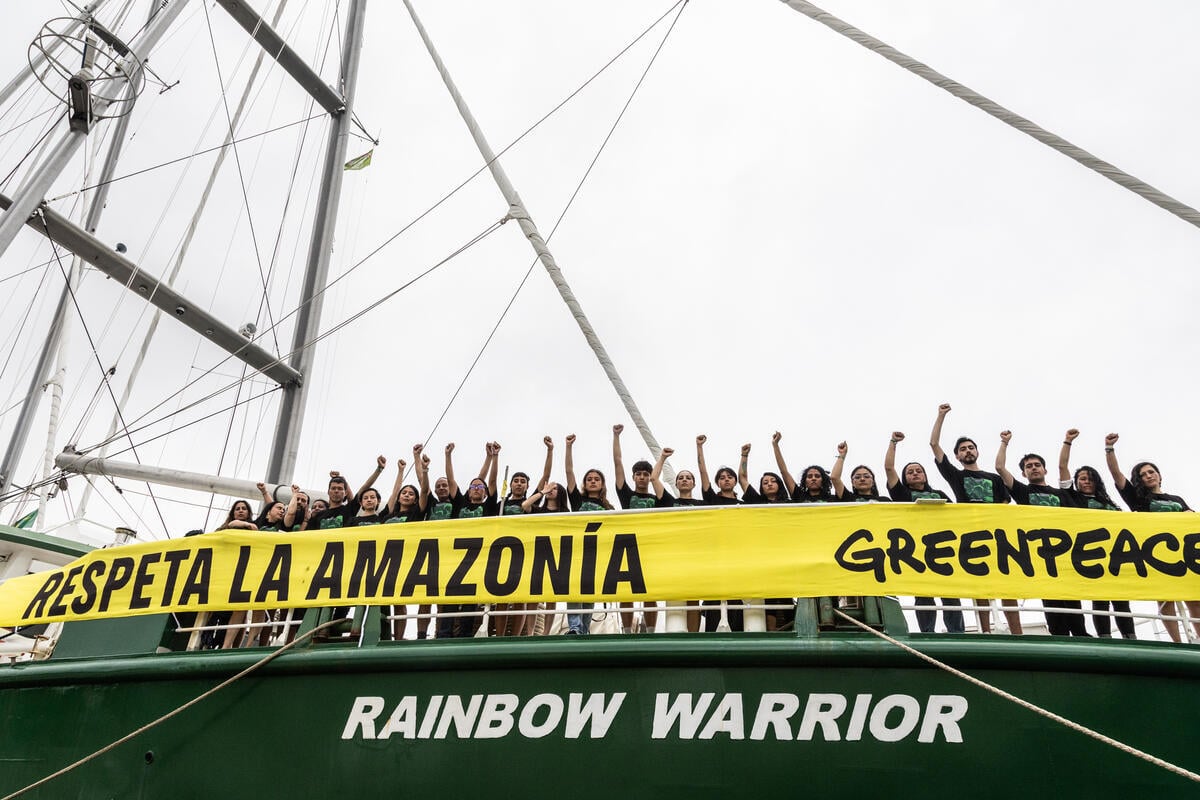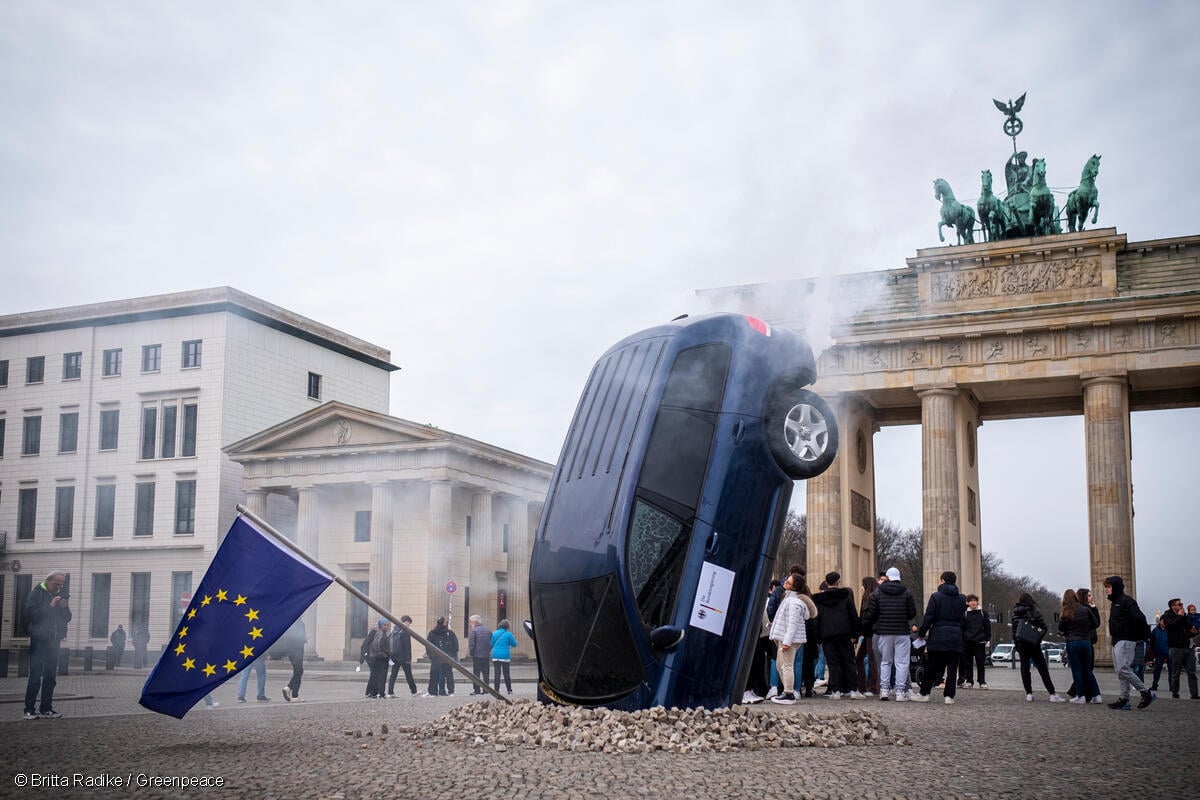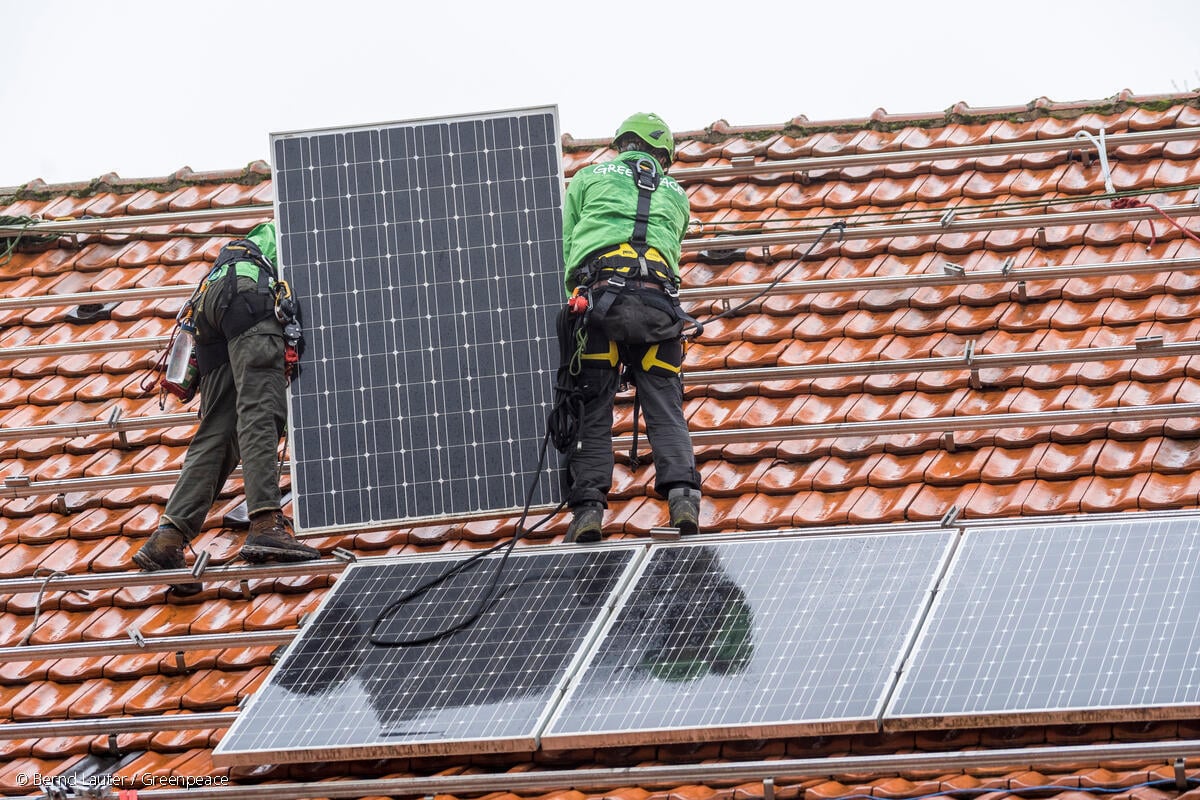
Brussels, 9 September 2022 – EU energy ministers meeting in Brussels today are finally considering emergency measures to bring down electricity and heating bills. However, some of the measures being discussed risk exacerbating climate breakdown, energy poverty and war, warned Greenpeace, adding that governments must prioritise the most vulnerable this winter, save energy by cutting waste and reducing demand, and shift away from fossil fuels to renewables.
Greenpeace EU campaigner Thomas Gelin said: “The energy crisis Europe is now facing is only the latest chapter in the long, shameful saga of global injustice and instability caused by fossil fuels. EU ministers must immediately protect those who suffer the most from high energy prices and prevent polluters from raking in obscene profits. But these steps to address the dysfunction of the market are just the bare minimum. What clearly needs to happen is to end the fossil fuel era for good, and to get serious about cutting energy waste, for example with a massive home insulation programme, and reducing the overall level of energy demand so that we have a chance of withstanding the havoc of the climate crisis in Europe and around the world.”
It has been less than a year since EU energy ministers held another emergency meeting to try to prevent skyrocketing energy prices from creating hardship across the EU last winter. But since that October 2021 meeting ended with no concrete action, the EU has in fact doubled down on its past mistakes in response to Russia’s latest invasion of Ukraine by greenlighting dozens of gas megaprojects, labelling some gas and nuclear investments as “sustainable”, courting autocratic regimes to supply gas, burning more coal and rushing to build new LNG infrastructure.
Contrary to the green rhetoric of politicians, recent data from the International Energy Agency and the OECD furthermore found that global subsidies for the fossil fuel industry actually doubled in 2021.
All these hand-outs to polluters have been accompanied by vague promises of making up for the increase in carbon emissions at some point in the future. They’ve happened against a backdrop of record-breaking droughts in Europe, China and East Africa and apocalyptic flooding in Pakistan. And they’ve taken place without bringing prices down for the poorest EU households, who will be forced to make the inhumane choice between heating and eating this winter.
Next steps
Ministers in Brussels today are discussing various options, ranging from reducing electricity demand at peak hours, to recovering revenues from energy companies for governments to redistribute to vulnerable households and businesses, to shoring up the liquidity of utility companies, to setting a price cap on Russian gas. Some measures, like decoupling fossil fuels from the rest of the energy market, would quickly bring average bills down and encourage customers to switch to cheaper, cleaner renewable energy suppliers. Others, like lowering the price of carbon via the EU’s emissions trading system, would incentivise more fossil fuel use and continue to allow polluters to make record profits off this crisis.
Greenpeace is calling on ministers to think beyond the current emergency and to invest in real resilience that supports people and planet in both the short and long term. Measures should be designed in a way which lays the foundations for a sustainable energy market, consistent with EU climate action laws. This means reducing and managing energy demand so as to allow the widespread electrification of sectors like heating and transport, without leading to an unsustainable and costly increase in electricity consumption. Where choices need to be made, big energy users like heavy industry should be forced to reduce their consumption before households. Renewables should be affordable for consumers and attractive for investors. Finally, governments should tax the profits made by energy companies in general, and fossil fuel companies in particular, and use the proceeds to help struggling households and small businesses with their immediate energy bills and with the transition to greener energies.
If governments can today agree on the way forward, the Commission is expected to present further details by the annual State of the Union speech by President Ursula von der Leyen, which will take place in the European Parliament on Wednesday 14 September.
Contacts:
Thomas Gelin, Greenpeace EU climate and transport campaigner: +32 (0) 473 57 04 46, [email protected]
Greenpeace EU press desk: +32 (0)2 274 1911, [email protected]



